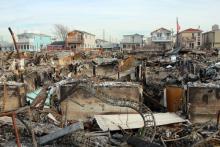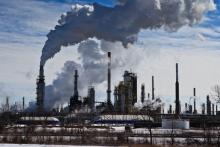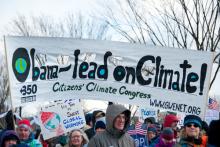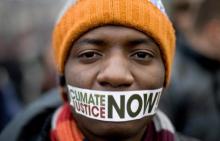The most precious place on Earth for me is a camp on a lake in the Adirondack Mountains of New York. During the next century, climate change will chase northward things that I cherish. Spruce, tamaracks, sugar maples, balsam fir, moose, mink, and loons will no longer grace the shores and waters of that lake. Like most people in northern climes, I see the changes happening already. I have to fight hard against despair, for my personal losses, yes, but also for the universality and injustice of the calamity, which already affects so many of the poor and innocent.
WHY IS IT so hard for people to respond effectively to the reality of climate change?
Changing people’s minds—with facts, tables, and predictions—has proven extremely difficult. Even showing people the miraculous beauty of the planet alongside the predicted losses is not working. Guilt, anxiety, and anger can be motivating forces, but they have debilitating side effects: They are all soul-destroying.
So I wonder about our hearts. Have we ignored our emotional and spiritual connections to the planet? Could the noise swirling around climate change—science, politics, media blitzes, as well as the weather disasters themselves—drown out the voice of a loss so profound that it rests unnamed in our souls? Could our breaking hearts be part of the reason we are immobilized?
In the 1960s, Rachel Carson’s image of a “silent spring” due to the proliferation of pesticides was as heartrending as it was controversial. Carson was ridiculed, her predictions dismissed. The corporate world paid millions to have her silenced. But eventually the love of bird songs won out. People read Carson’s book, grieved at the prospect of a silent spring, spoke up, and insisted the chemical-company-supported politicians ban DDT.









